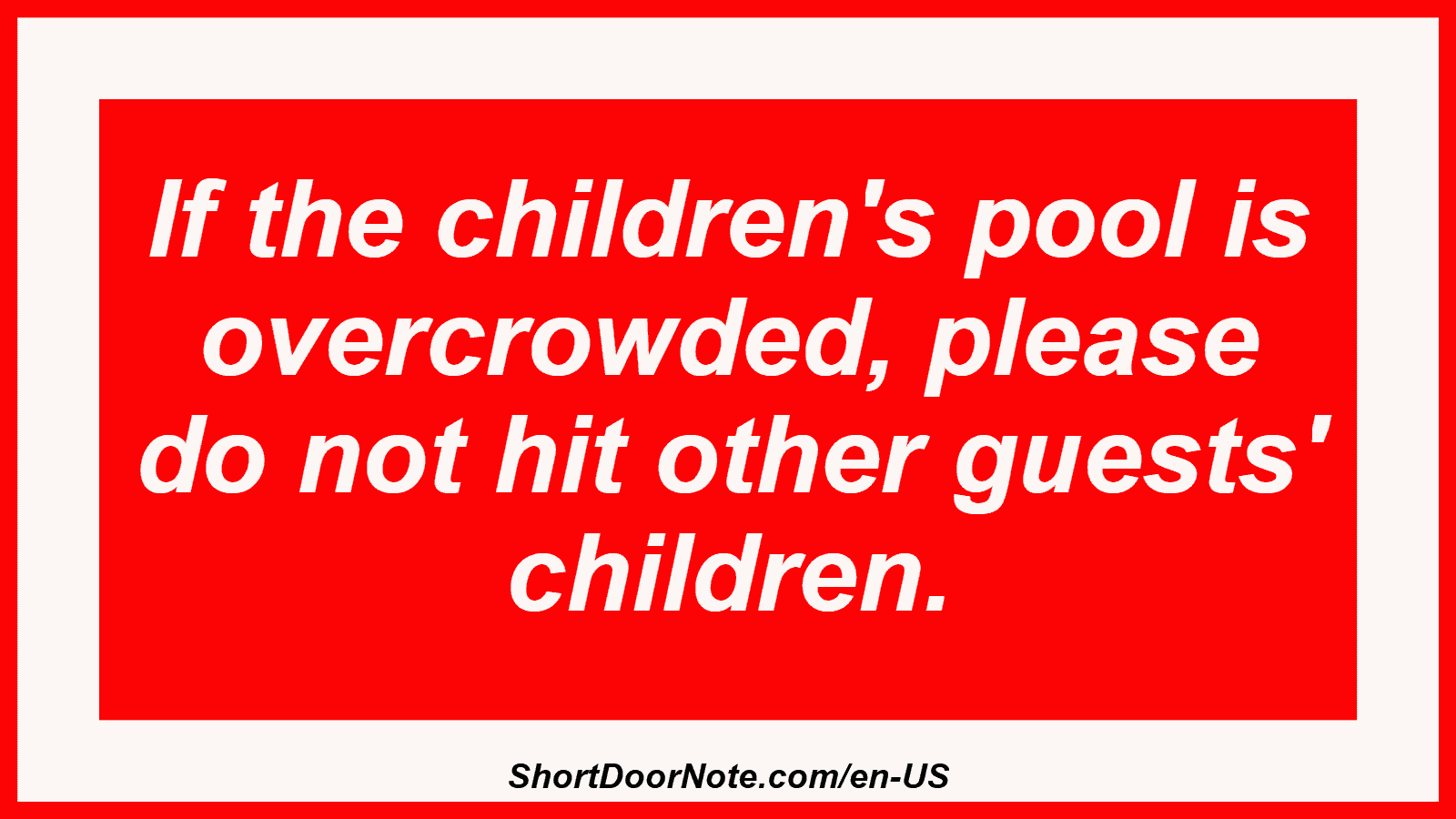If the children's pool is overcrowded, please do not hit other guests' children.
"Humorous reminder not to attack other children in crowded children's pools." This is a very informative tip!
The information board "If the children's pool is overcrowded, please do not hit other guests' children" is a funny and at the same time serious reminder of appropriate behavior in overcrowded swimming pools or similar facilities.
The humorous tone of the sign aims to convey an important message in a way that will grab the attention of readers. The wording "please do not hit other guests' children" is deliberately exaggerated to make it clear that aggressive behavior is unacceptable in such situations. The mention of other guests' children highlights that the well-being of all visitors is at stake and that respectful interactions between them are important, especially when space is limited.
The sign addresses a common challenge in public swimming pools or leisure facilities, where overcrowding can lead to tension and conflict. It is a reminder that patience and consideration are necessary to ensure a safe and enjoyable environment for everyone, especially children, who are often particularly vulnerable.
The choice of the word "hit" in connection with children is deliberate to draw a clear line and make it clear that physical violence or aggressive acts will not be tolerated. By addressing this possibility in a humorous way, the information sign also conveys a serious message about the correct behavior in such situations.
Such signs are not only informative, but also help raise awareness of social norms and expectations for behavior in public spaces. They can help prevent conflict and promote respectful interactions by setting clear expectations while communicating in a way that engages readers and makes them think.
Overall, the sign "If the children's pool is overcrowded, please do not hit other guests' children" is a good example of using humor to convey a serious message while pointing out important social norms and proper behavior in public recreational facilities.
[1002357]





